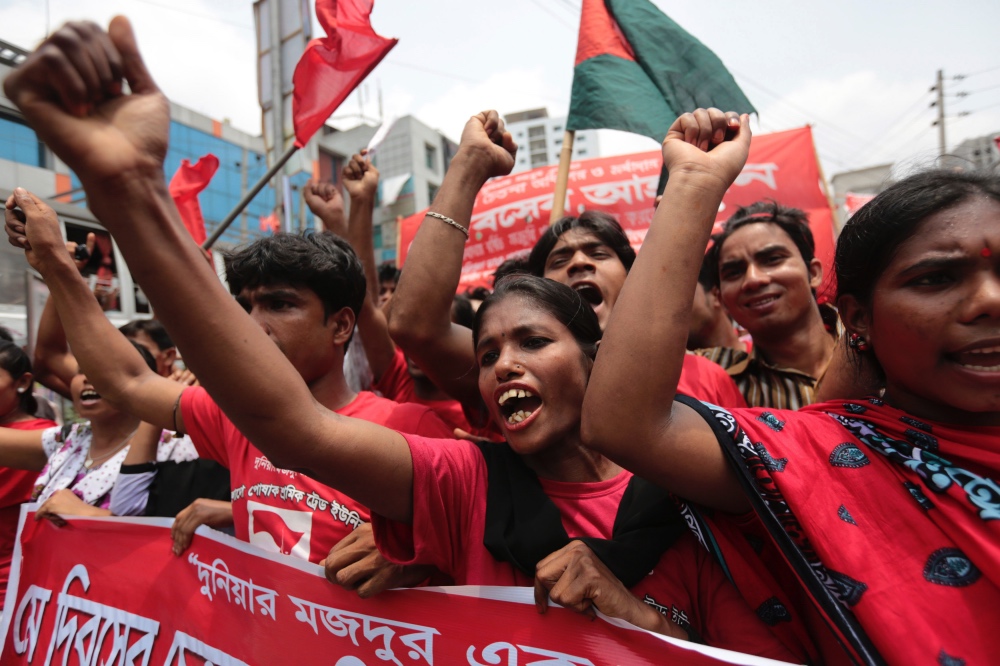The safety of workers making clothing for global brands like Adidas and H&M could be at risk if Bangladesh’s Supreme Court moves on Sunday to shut down a factory inspection mechanism set up by European fashion labels, campaigners said on Tuesday.
The government has shown “a shocking level of unreadiness” to take over from the Bangladesh Accord – signed by about 200 major brands and unions after the 2013 Rana Plaza disaster – said four groups, including Clean Clothes Campaign.

Protesters and activists hold placards on the first year anniversary of the collapse of Rana Plaza as they gather in Savar on 24th April, 2014. Protesters and family members of victims demand compensation on the one year anniversary of the collapse of Rana Plaza, in which more than 1,100 factory workers were killed and 2,500 others were injured. PICTURE: REUTERS/Andrew Biraj
“At this moment, the accord is the only organisation that is meaningfully and transparently making factories safer,” said Christie Miedema, a spokeswoman for the alliance of garment industry unions and advocacy organisations.
“A forced early transition could jeopardise the finalisation of the vital elements of remediation,” she said, referring to accord’s efforts to make some 1,700 factories safe before it is scheduled to hand over to government inspectors in 2021.
Bangladesh, the world’s second largest garment producer, has said that it is capable of monitoring the country’s thousands of factories through its Remediation Coordination Cell, which is currently responsible for the safety of 745 factories.
Worker safety has come under scrutiny in Bangladesh after the Rana Plaza factory collapsed, killing about 1,100 people, and putting big brands under pressure to ensure their products are responsibly sourced.
The Supreme Court is considering an appeal by the accord against a ruling last year which ordered it to shut down, following a petition by a factory owner who was prevented from working with accord brands and accused of false test results.
None of 745 factories under the government’s RCC inspectors has eliminated high-risk hazards – such as lockable exits that could trap workers during a fire – identified at least three years ago, Clean Clothes Campaign said in a report on Tuesday.
Farid Ahmed, an official with the Department of Inspection for Factories and Establishments – which manages the RCC – said it was hard for the factories that the government inspects to implement reforms quickly.
“Most of the factory owners we deal with run in rented buildings or shared buildings,” he told the Thomson Reuters Foundation. “It’s difficult for all of them to agree on a structural change.”
The Clean Clothes Campaign report said that accord had banned 114 critically unsafe factories from supplying its signatory buyers but half of these facilities remain open under the government’s inspection program.
“There is no indication in the government’s own records that any safety improvements have been made to these factories,” it said.
Ahmed said many factories regulated by the RCC sell to individual buyers who exert less pressure over safety standards.
“There isn’t much concern from the buyers since they aren’t that big. That adds to the difficulties,” said Ahmed.




